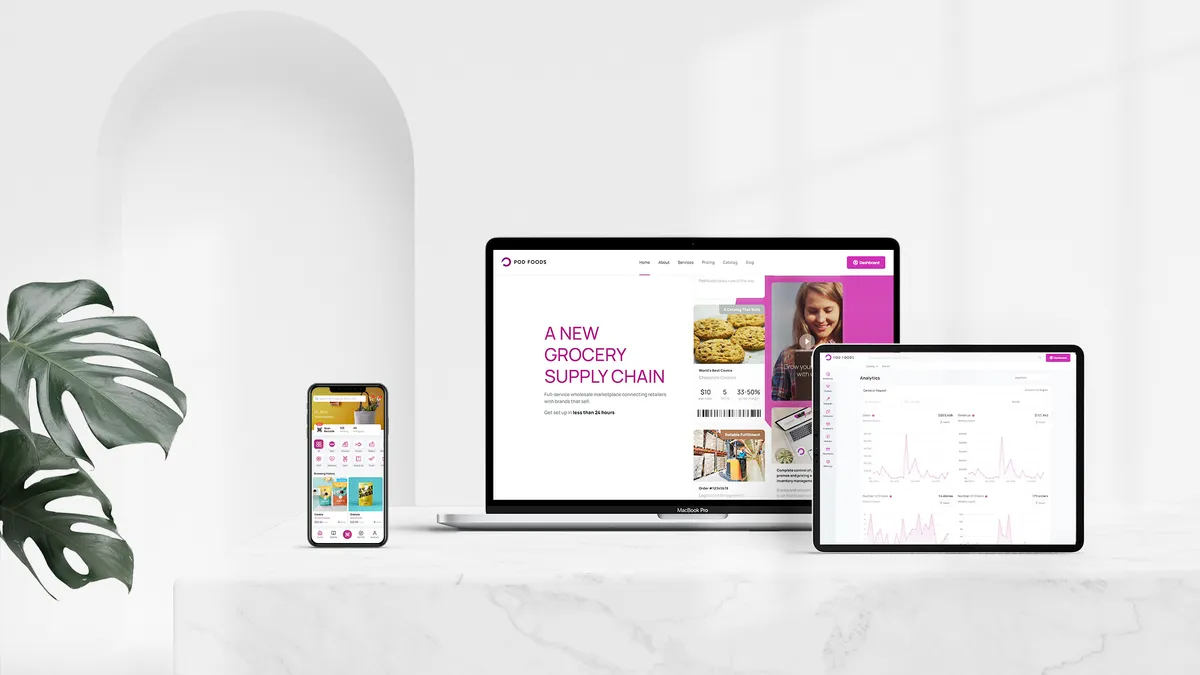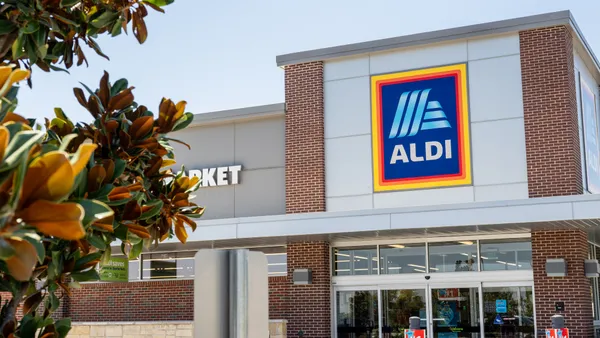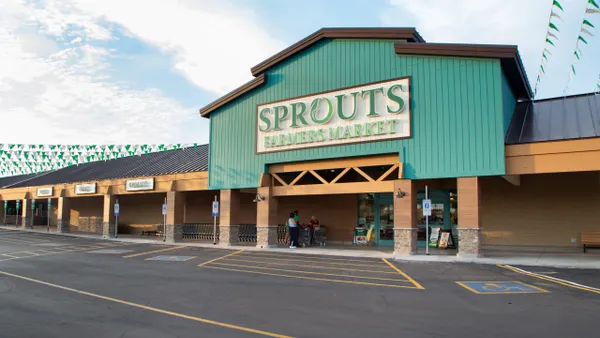Dive Brief:
- Sprouts Farmers Market will receive shipments of products from emerging suppliers at 130 Southeastern stores as part of a partnership with distributor Pod Foods, according to a news release Thursday.
- Pod Foods carries more than 1,500 products that it can match with retailers’ stores through its “virtualized wholesale” model. To help service demand from Sprouts, Pod Foods is opening a new warehouse in Florida.
- Sprouts has made product discovery a key part of its strategy as it faces pressure from investors to improve its results.
Dive Insight:
As Sprouts looks to improve its assortment of emerging brands, it’s turning to a strategic distribution partnership to help bring more of these unique, localized products to its stores.
The specialty retailer, which has approximately 380 stores in 23 states, has posted sales growth well below its grocery chain peers throughout the pandemic, and analysts have said the company needs to quickly improve its results or face pressure to undergo a drastic strategic shift like going private. During its first-quarter earnings call in May, CEO Jack Sinclair said Sprouts’ introduced 1,000 new products to stores and said the company hopes to introduce a reinvigorated “selling culture” into its locations.
“This idea of creating a selling culture inside the store, I think that was part of the DNA of the company,” Sinclair said.
Pod Foods offers a marketplace of products from emerging suppliers and uses its technology and sales data to help match retailers with the right selections for their stores. The company then routes items to retail locations, batching together shipments in a manner that’s similar to traditional distributors, said Larissa Russell, co-founder and CEO of Pod Foods.
Pod Foods is able to offer a large marketplace of niche products thanks to its distribution model, which relies on partner companies to store and deliver the products that retailers order. Traditional distributors, in contrast, focus on stocking their warehouses with only high-velocity goods, said Russell.
“They're incentivized to bring in brands that are going to be super-high velocity, lower risk and high volume. And that's basically everything counter to what we would call an emerging brand, which they have very little historical velocity information to go on,” she said.
Retailers can order from Pod Foods’ B2B marketplace, then get items routed to their stores. Russell said Sprouts was attracted to her company’s ability to quickly get items to stores as grocers across the country aim to boost their selection of local, niche products. Retailers are also trying to source more products from diverse suppliers as they face pressure from consumers and investors to support brands led by individuals from underrepresented backgrounds.
Russell said retailers are taking an increasingly localized approach to how they order goods for their stores. Instead of ordering for stores throughout the chain, many grocers are focusing on regional ordering to satisfy demand according to market. The next step, Russell said, is to narrow ordering down to the store level, where managers can procure products for their specific location.
In addition to helping retailers localize their ordering, Pod Foods is aiming to offer more data and insights for its product suppliers, including competitive information and advanced analytics.
“Versus other distributors we’re incredibly transparent when it comes to where their products are moving, how much inventory they have, and so on,” Russell said.










